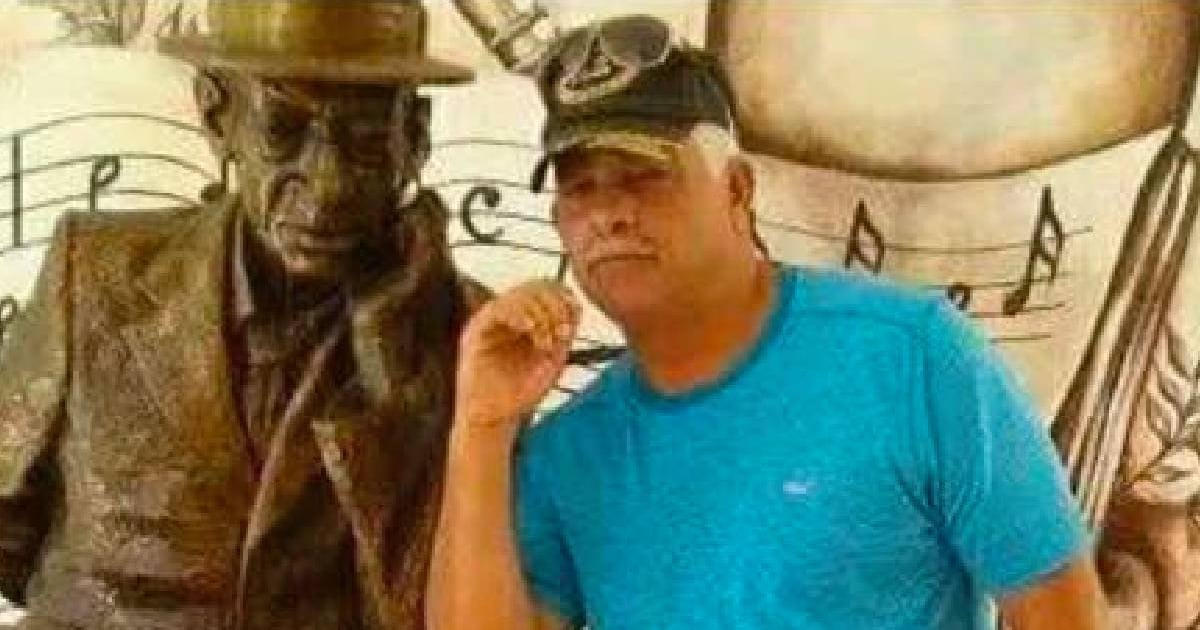Eduardo Velázquez Infante, a notorious enforcer for the Cuban regime known as "Major Eduardo," has voluntarily left the United States and is currently residing in Puerto Padre, located in the province of Las Tunas. This information was confirmed by the Foundation for Human Rights in Cuba. Velázquez's departure, which occurred in early April, followed his inclusion in a list of alleged human rights violators submitted to the Department of Homeland Security (DHS) by Congressman Carlos A. Giménez, according to a post by the organization on X.
Velázquez, aged 55, entered the U.S. in March 2023 through the humanitarian parole program sponsored by the Biden administration, as verified by the independent media outlet CubaNet. His entry was facilitated by a sister residing in the country, although the program is intended to protect individuals facing political persecution. Activists and members of the Cuban exile community have criticized this as a fraudulent use of the program in Velázquez's case.
Congressman Carlos Giménez expressed satisfaction on X, stating, "A repressor from our list has self-deported," and emphasized, "His parole status prevents him from returning." Velázquez Infante served as an operational officer for the Ministry of the Interior (MININT) in Las Tunas from 1991 until his retirement in 2018. During his tenure, he was involved in numerous operations targeting dissidents and opposition activists.
Background of Velázquez Infante's Actions
After retiring, Velázquez took a civilian role at the Guiteras plant as head of security, though he continued to be recognized as an agent linked to State Security. Just before leaving Cuba, he deleted his social media profiles, a move activists interpret as an attempt to erase traces of his repressive past.
Impacts and Reactions
His inclusion on the DHS list led to increased legal and media scrutiny, prompting his voluntary departure from the U.S., particularly following calls from Giménez for exiles in the U.S. to report repressors settling in their communities. Velázquez's self-deportation came shortly after Misael Enamorado Dager, a former first secretary of the Communist Party in Granma and Santiago de Cuba, also reportedly returned to the island after being publicly exposed.
Enamorado had entered the U.S. under humanitarian parole and was living in Houston, Texas, with his son. He never achieved permanent residency. The Cuban exile community has denounced both cases as examples of immigration impunity, arguing that repressors and former communist leaders are exploiting U.S. laws to settle as if they were victims of the oppressive system they supported.
Journalist Mario Pentón, alongside activist Luis Domínguez from the organization Cuba al Descubierto, has documented these cases. Pentón stated, "First they live off the people, then they abandon them, and when they are unwelcome, they return to enjoy privileges in the dictatorship they helped sustain."
Symbolic Victories and Legislative Pressure
The exiles view these incidents as symbolic victories and stern warnings: those who have held power within the Cuban regime's repressive apparatus should not qualify for immigration benefits such as humanitarian parole or the Cuban Adjustment Act. "The oppressors of the Cuban people cannot seek refuge in the United States as if they were political refugees. This behavior will not be tolerated," Pentón concluded.
The combined pressure from the Cuban exile community and legislative actions is beginning to take effect in identifying former regime officials attempting to blend into the U.S. while evading social and political scrutiny.
Frequently Asked Questions about Cuban Repressors in the U.S.
What led to Eduardo Velázquez Infante's self-deportation from the U.S.?
Eduardo Velázquez Infante self-deported after being named in a list of alleged human rights violators submitted to the Department of Homeland Security, leading to increased scrutiny.
Why are Cuban exiles concerned about former regime officials entering the U.S.?
Cuban exiles are concerned because they believe former regime officials are exploiting U.S. immigration laws to settle as if they were victims, despite having supported the oppressive regime.
